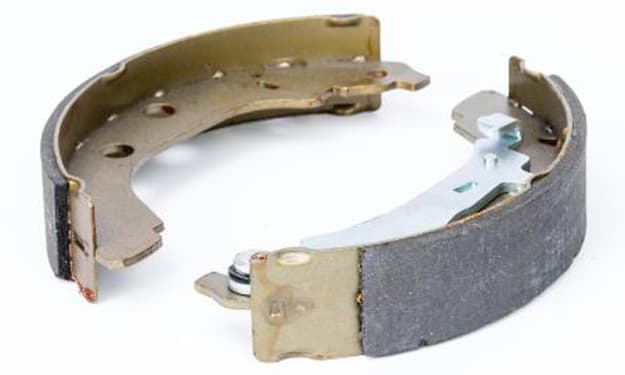How Much Engine Oil Does My Vehicle Need?
Knowing the amount of oil your car requires and the suggested interval for changing the engine oil is critical information since it can lead to unexpected engine failure. Look for car service in Reading online and make an appointment with a technician.

When it comes to routine maintenance, car owners who don't know much about their vehicle sometimes question, "How much oil does my car require?" Knowing the answer to this question is critical whether you are driving your first or tenth automobile.
One of the leading causes of car engine failure is a lack of engine oil, which may be costly to rectify because it is such a serious issue. As a result, reading this post will teach you how to avoid a huge tragedy in the future.
You can also refer to your owner’s manual or search online for car service in Reading and schedule a service appointment with a car mechanic who will be able to advise you further when completing the required service recommendation.
Because the sizes of the engines in various cars varies, they are built to accept varied volumes of motor oil. It's essential to know important facts about your car, such as how much oil the engine size requires, among other things.
The majority of this information is included in your vehicle's owner's handbook, which I'm sure you haven't read. It's all right! The majority of folks don't. However, you can't afford to wait too long to find out because failing to do so might result in an expensive error. So, let's look at a few different vehicle engine sizes:
• 3.0 to 3.5 litres of engine oil for a single cylinder engine
• 3.5 to 4.0 litres of engine oil for a two-cylinder engine
• 3.5 to 4.0 litres of engine oil for a three-cylinder engine
• 3.5 to 4.5 litres of engine oil for a four-cylinder engine
• 4.5 to 5.5 litres of engine oil for a six-cylinder engine
• 5.5 to 7.5 litres of engine oil for an 8-cylinder engine
Other cars with a dry oil sump, on the other hand, may require up to 10 – 12 litres of oil, and in some cases, even more.
I'm confident your vehicle has one of the engine sizes stated in the table above; as a result, you can see the required amount of engine oil for the engine's appropriate performance and efficiency.
It would be beneficial if you wrote this information down somewhere easy to find it or saved it on your phone, so you don't forget it. You might also obtain a book on engine oil capacity.
Following this standard and the suggested interval for changing your car's engine oil is critical for keeping your vehicle's engine alive and operating for the next few years until it reaches its lifespan. Meanwhile, you must select the appropriate oil for your car depending on a number of criteria.
Expert auto technicians say that simply changing your car's engine oil because it's time isn't enough; you also need to make sure you follow the manufacturer's standards, which are listed in the vehicle handbook. Look for car garages in Reading online and book a manufacture recommended service.
The information is provided to guarantee that you are properly directed in giving necessary maintenance for your vehicle so that it can scale through its intended lifespan and operate efficiently until that time comes. The following section will assist you in selecting the appropriate oil.
Selecting the Correct Engine Oil For Your Car
The importance of selecting the correct type of motor oil for your vehicle cannot be overstated, since engine oil is critical to the effective operation of your vehicle's engine. When selecting motor oil for your car, there are a few things to keep in mind:
Oil viscosity level - The oil viscosity level, which is indicated by a number followed by a “W” and then another number, is one of the first and most important elements to consider. The first number represents the flow of the motor oil at 0 degrees Fahrenheit, while the “W” represents the viscosity level of the oil at 212 degrees Fahrenheit.The number preceding the "W" is critical to remember since the lower the number, the easier your car's engine will turn over in cold weather, and vice versa.
Synthetic vs. conventional engine oil - You must also choose between synthetic and conventional engine oil for your vehicle. Using traditional engine oil will necessitate more regular oil changes. Synthetic oil, on the other hand, has a handful of specific chemicals that aid in the removal of deposits. The additives then assist the oil in flowing efficiently and effectively at lower temperatures. Synthetic oil has a low viscosity and flows smoothly at high temperatures.
High mileage oil - Finally, if your vehicle has been driven for more than 75,000 miles, you may wish to use high-mileage oil. The oil contains certain special conditioners that guarantee that the internal engine seals expand, increasing their flexibility and efficiency. When you take into account the three variables listed above, you'll be able to select the best motor oil for your car, depending on the situation.
Frequently Asked Questions (FAQ’s)
If my vehicle is empty, how much oil should I put in it?
If you're wondering, "How much oil does my car require if it's low on oil or completely empty?" When you see that your car's engine oil is running low and no longer reaches the dipstick, you must immediately put in a minimum of 1 (one) full quart of engine oil to keep your car's engine alive and operating effectively.
Allowing your vehicle to run out of oil completely is dangerous since it might reduce engine efficiency. Oil shortages can cause your car's engine to grind, seize, and stall; if this happens for longer than required, your car's engine may entirely fail.
How much oil does my vehicle require?
The amount of oil your car requires is determined by the engine's size. Most passenger cars require 3 to 7 litres of oil, whereas vehicles with a dry oil sump may require up to 10 – 12 litres of oil, and maybe more, depending on the circumstances.
The manufacturer's handbook for your vehicle, on the other hand, includes specific information on your vehicle, its components, and the quantity of fluid necessary in specific areas. You may use it to determine the amount of oil your vehicle requires or consult a car oil capacity chart.
What is the oil capacity of a 1.6-liter engine?
“How many quarts of oil does a 1.6-liter engine take?” you might wonder. Small four-cylinder engines with a 1.6-liter engine oil capacity use around 3.5 litres (3.6 quarts) of engine oil. Because the quantity is little, you should never let your car's engine run out of oil, as this might be dangerous to the engine.
It is easier and less expensive to top up your vehicle's engine oil than to repair a total engine failure; thus, it is recommended that you check your vehicle's engine oil level on a frequent basis to determine when it requires a top-up.
What is the oil capacity of a 1.9-liter engine?
If you need to change the oil and filter on a car with a 1.9-liter engine, you'll need around 4.0 quarts of motor oil. Changing your car's engine oil at the recommended intervals will improve lubrication and assist to minimise the amount of heat generated by the engine. If you're wondering, "How much oil does my vehicle need?" you may find some of this information in your vehicle's handbook.
For a 2.5-liter engine, how much oil do I need?
If your car's engine oil capacity is 2.5 litres with a filter, you should put roughly 4.8 quarts of engine oil in at the recommended level. If you drive a truck, you may need to check the engine oil capacity.
Ensure that the engine is changed to remove any debris or dirt that may be obstructing the performance and efficiency of your vehicle's engine. You don't want your engine to deteriorate to the point of failure!
About the Creator
Car Services in Reading
Are you looking for a reputable and high-quality car garage in Reading ? Car Services in Reading is your one-stop shop for online garage services in Reading. Book online car repair services with us with confidence.






Comments
There are no comments for this story
Be the first to respond and start the conversation.